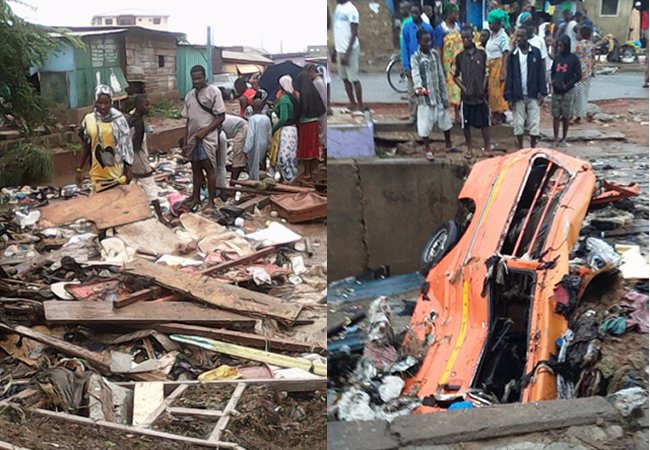
Sanitation in Ghana over the years has worsened.
Successive governments have in their small way tried to find a solution to the problem but, all attempts have proven futile because of the attitude of the citizenry.
In view of this, I have given it a great thought and have designed a strategy which can help to eliminate this problem of filth permanently if implemented.
These measures are clearly enumerated in the paragraph below.
• The core of the problem as stated earlier is attitudinal. Human attitudes are always controlled by laws.
• Ghana has beautiful sanitation laws in our books; it is now a matter of strict implementation.
• I propose Special Sanitation Courts should be established in the various districts of the country.
• These courts would solely be adjudicating on sanitation related issues.
• Running special courts of this nature demands some sort of funding, else it cannot be efficient as it is expected to be and may not stand the test of time.
• I therefore suggest a portion of the District Assemblies Common Fund should be dedicated to financing these special courts.
• Another source of funding would be fines that would be slapped on offenders.
• By my estimation, the fine should be dependent on the gravity of the offense. But at least a fine of GH₵300 minimum to GH₵1000 maximum.
• With the GH₵300 fine, I suggest GH₵100 goes to government’s coffers to pay contracted waste management companies.
• Another GH₵100 should be dedicated to the running of the Special Court and the remaining GH₵100 would be served as a token to the voluntary watch dogs who will report offenders for onward prosecution at the Special Court.
• By this arrangement, the usual sanitation task force system will be eliminated, saving the districts the funds that hitherto, were used to maintain this task force.
• But before this can effectively materialize, public educational and awareness must be created through the media and also waste bins to be placed at various vantage points on our streets and market places to ensure sanity.
• I suggest a three months period of awareness creation would be quiet good enough.
• A massive general public cleaning exercise would be conducted across the length and breadth of the country led by the appropriate authorities like the Metropolitan, Municipal and District Assemblies, the Environmental protection agency and the Health Ministry nationwide to mark the leadership example before the law is passed thereof.
• The waste management companies that have contracts with government will see to it that their work is properly done without excuses while government also pays monies due them on time.
I believe this arrangement will deter the citizenry from indiscriminate littering and dumping of refuse.
• Furthermore, manufacturers and importers of canned products must be encouraged to shift from can and plastic usage to paper which can be easily burnt after use because they become useless after use and serve to create lots of filth in the country.
• In conclusion, If citizens are wide aware that for instance, dropping a 20 pesewa pure water sachet on the street can make them pay a fee ranging from GH₵300 to GH₵1000 or in default face three to six months jail term with hard labor, they would become much more responsible especially knowing that every citizen is a watch dog.
I believe that if we implement these measures, the crux of the sanitation problem in Ghana which is basically attitudinal will be put to check, making room for other measures to become more effective.
Nana Yaw Addai Mununkum|ahotoronline.com|Ghana




